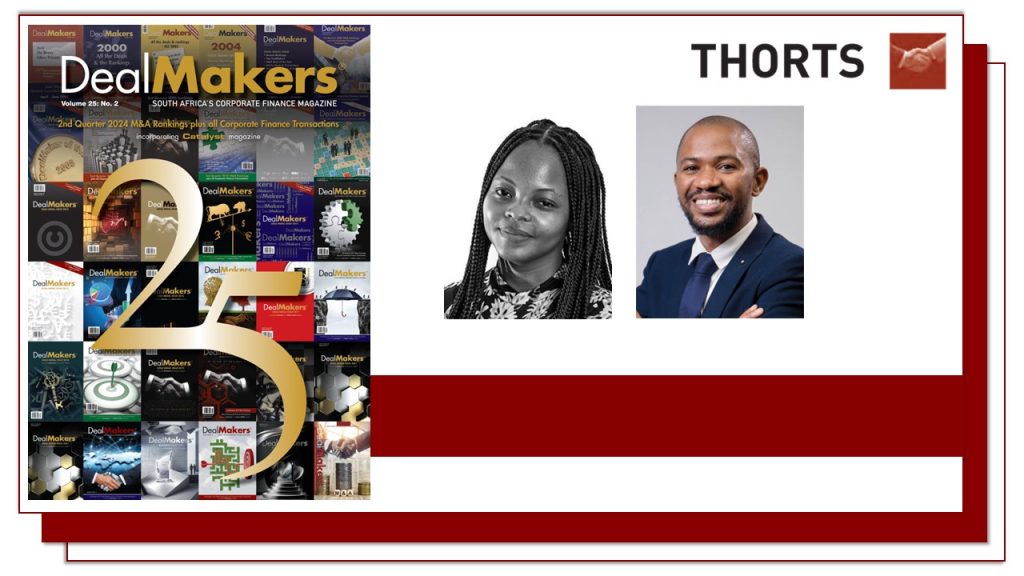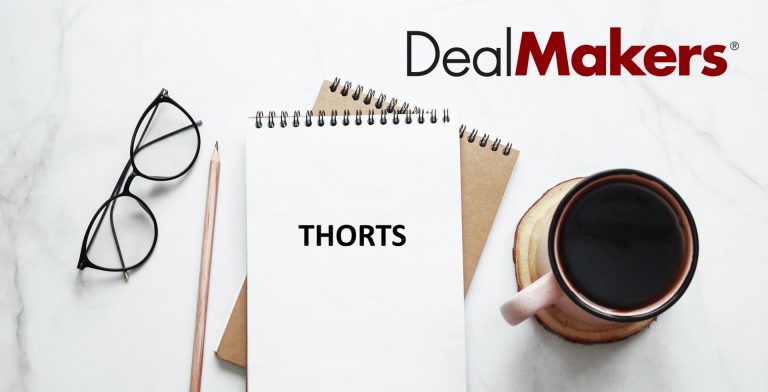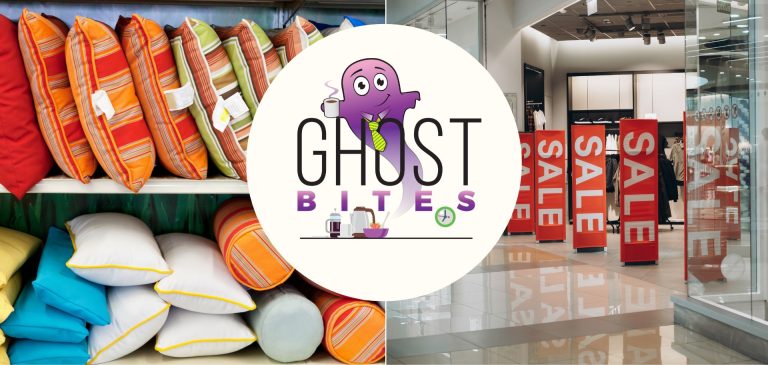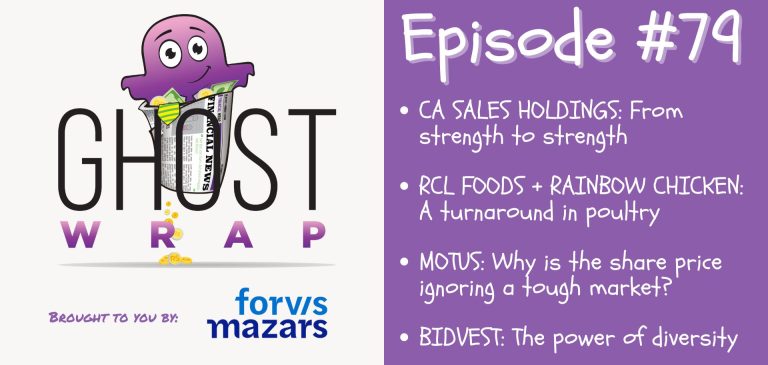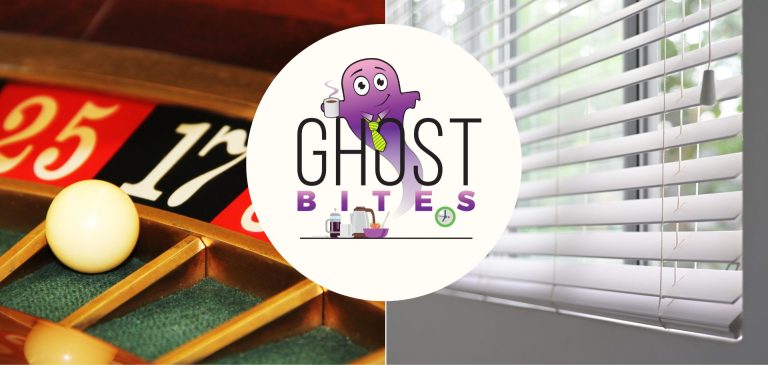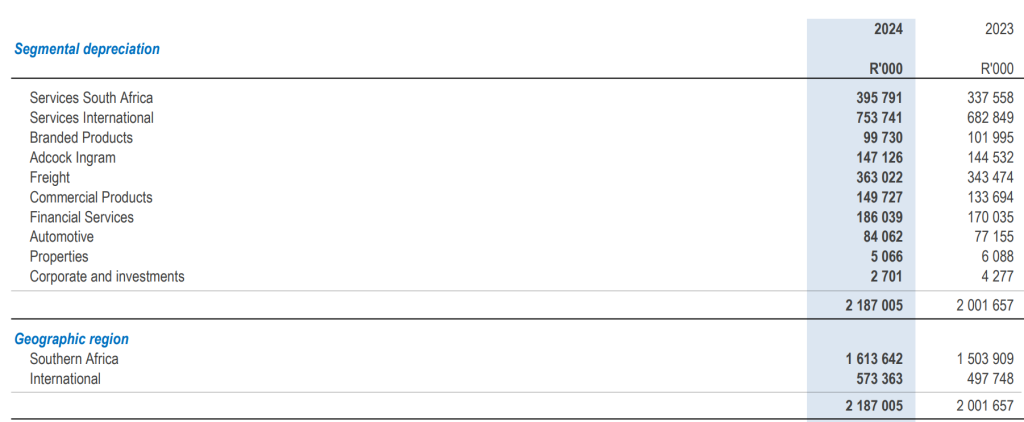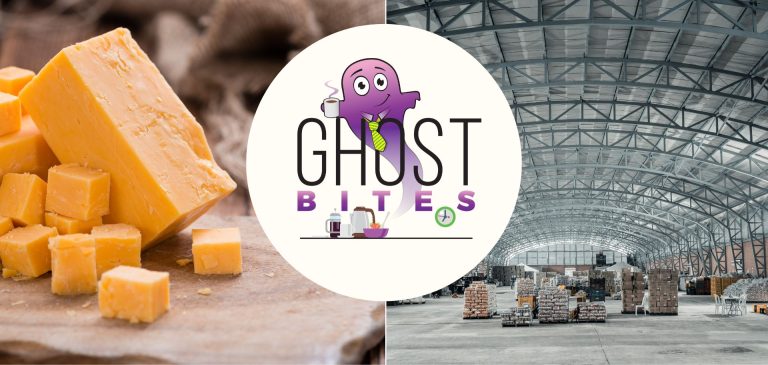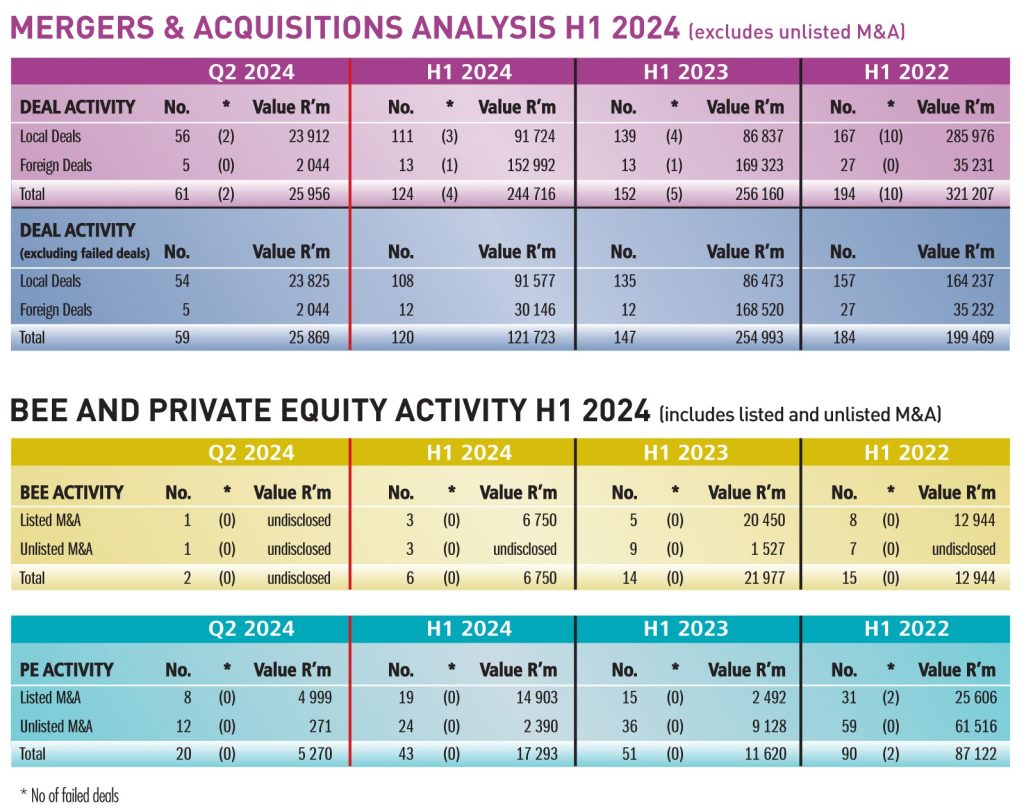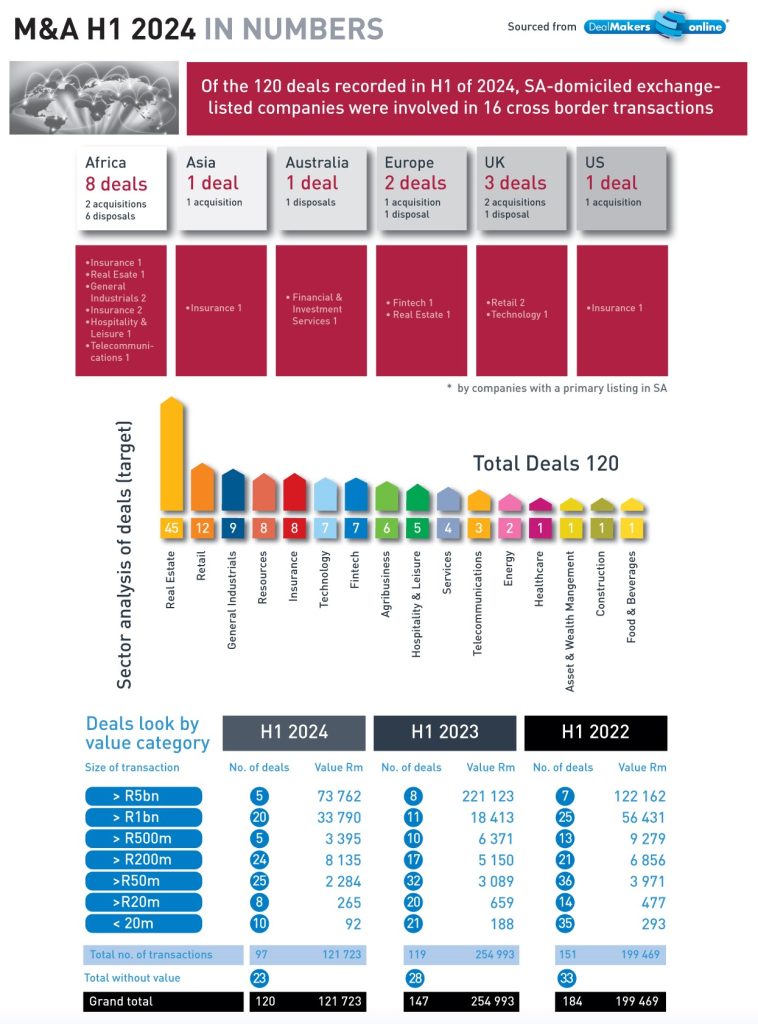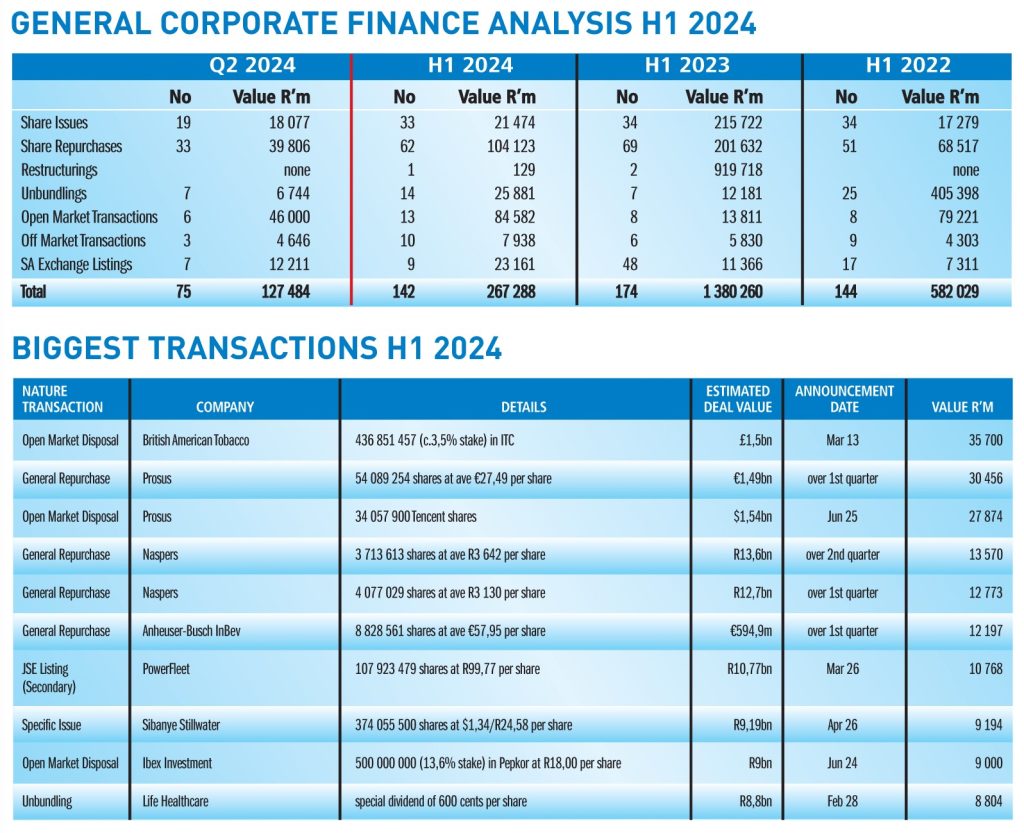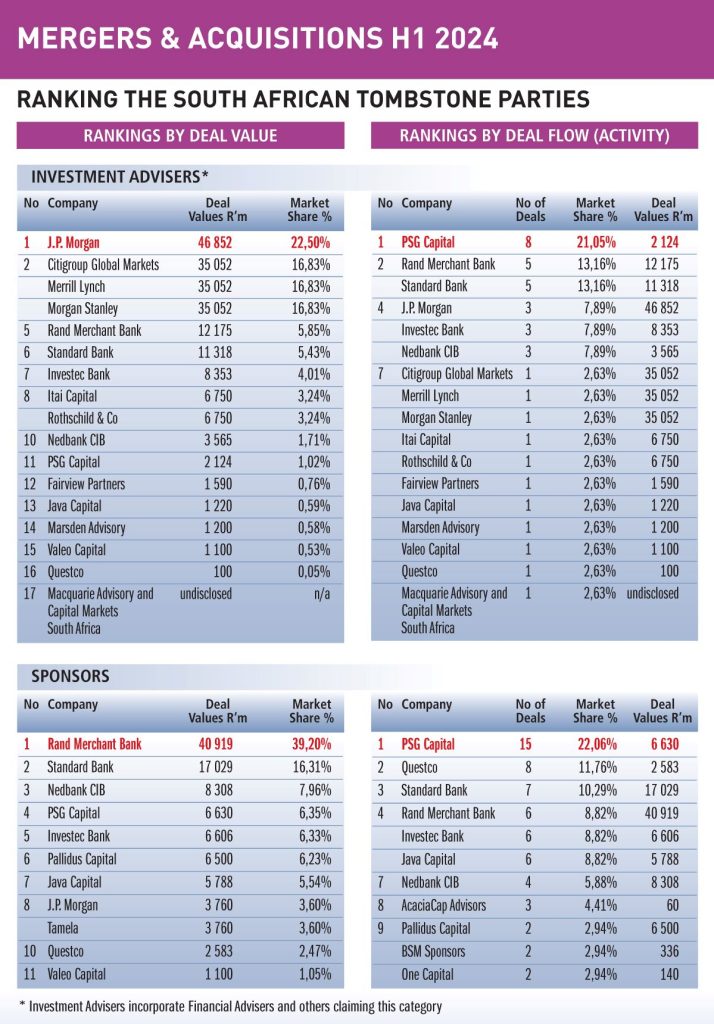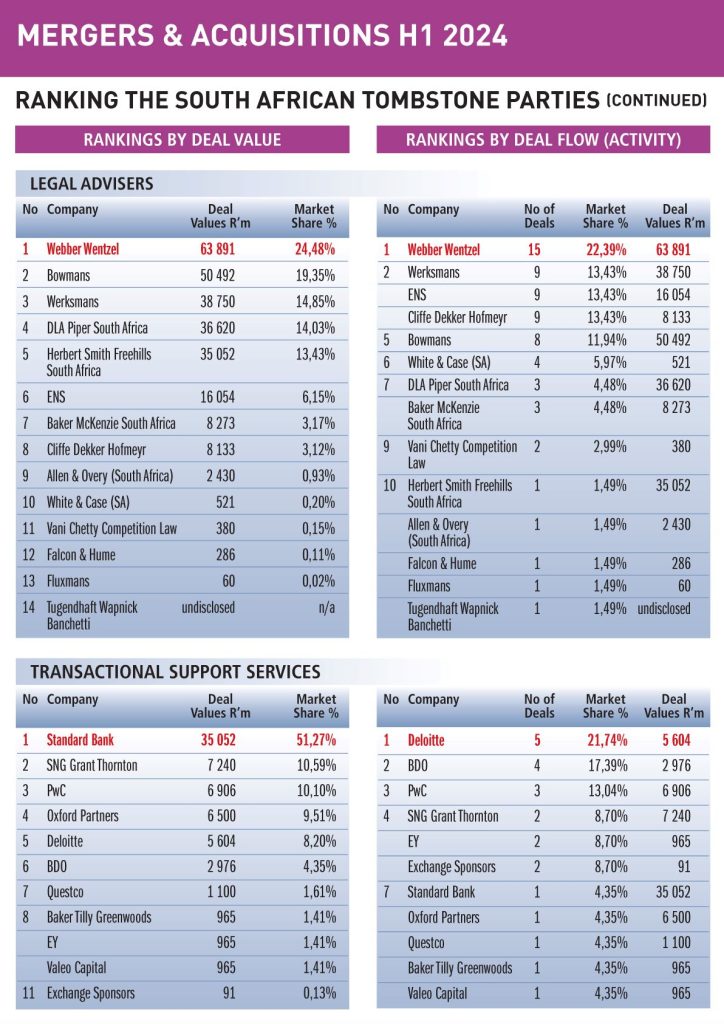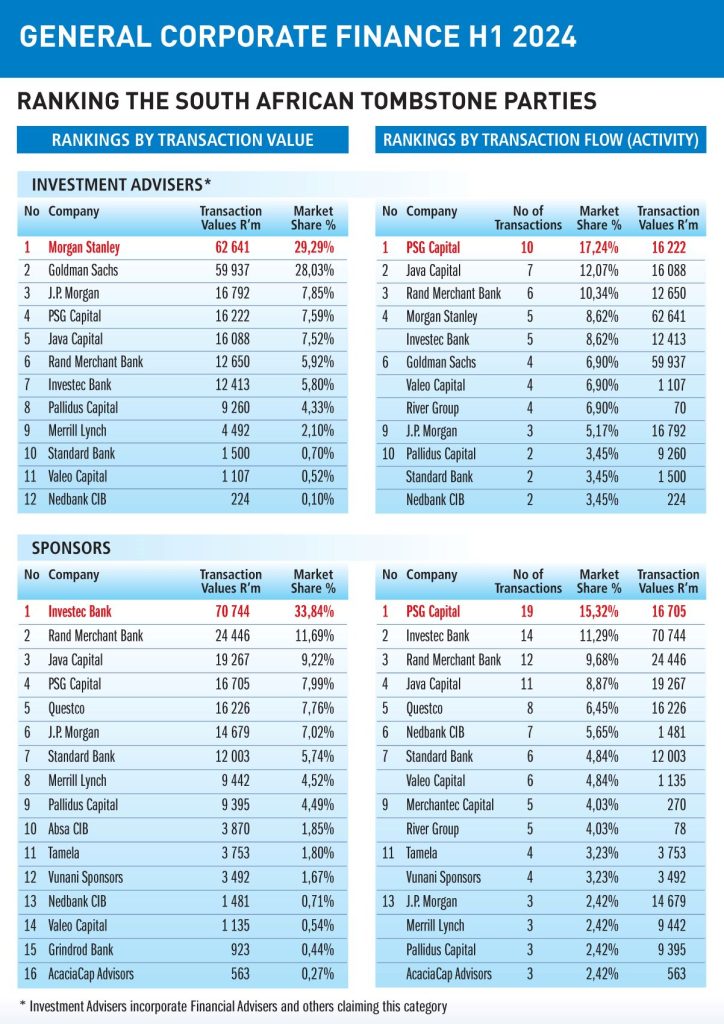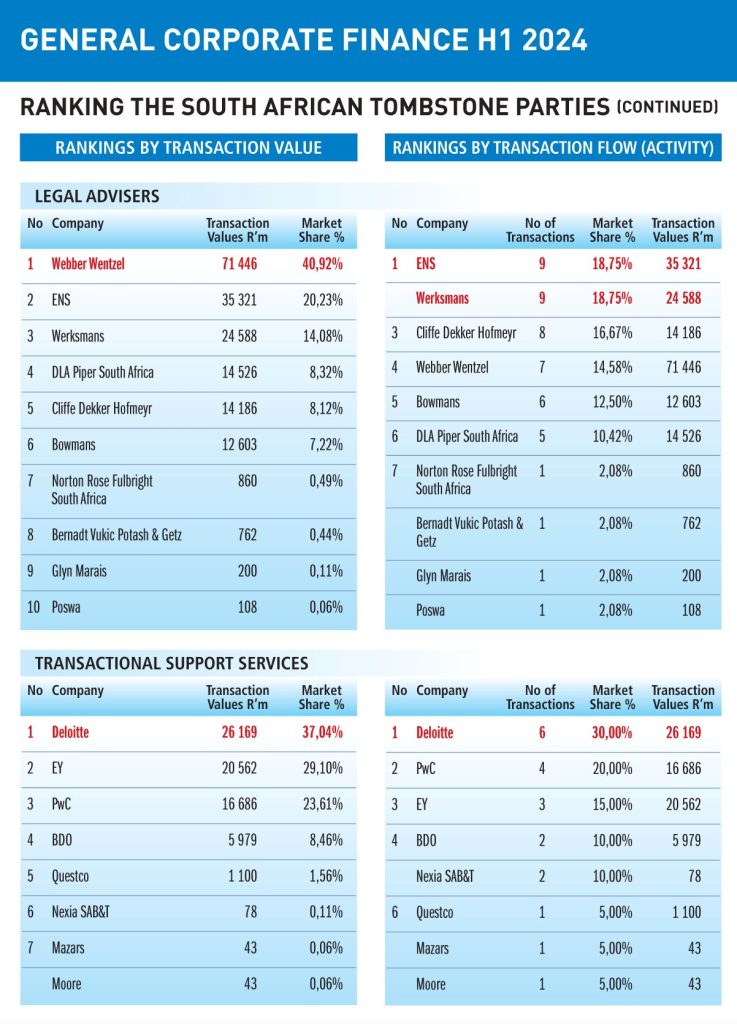Listen to the show using this podcast player:
With a strong belief that both ETFs and single stocks are relevant to any long-term portfolio strategy, The Finance Ghost hosted Siyabulela Nomoyi of Satrix to talk about why ETFs are so helpful – especially in the context of Tax-Free Savings Accounts (TFSA).
Siya didn’t waste the opportunity to ask questions about single stock research as part of the discussion, showing just how different the process is for choosing ETFs vs. single stocks.
For those willing to put in the effort to expand their investment knowledge and build wealth, this is a fantastic podcast. This podcast was first published here.
Satrix Investments Pty Limited and Satrix Managers RF Pty Limited are authorised financial services providers. Nothing you have heard in this podcast should be construed as advice. Please do your own research and visit the Satrix website for more information on all their ETF products.
Full transcript:
Introduction: This episode of Ghost Stories is brought to you by Satrix, the leading provider of index tracking solutions in South Africa and a proud partner of Ghost Mail. With no minimums and easy, low-cost access to local and global products via the SatrixNow online investment platform, everyone can own the market. Visit satrix.co.za for more information.
The Finance Ghost: Welcome to this episode of the Ghost Stories podcast, and it’s another one with the team from Satrix, so you know you’re definitely going to learn something great on the show – as has been the case on all of the Satrix podcasts we’ve done with various members of the team. And Siya, you’re certainly no stranger to regular listeners of Ghost Stories, and you’re no stranger either to followers of local FinTwit or I suppose, FinX as it is today.
You make it no secret that ETFs are a major interest of yours, of course, and certainly that’s why you are at Satrix. So, Siya, thank you so much for doing another podcast with me. I think we are going to do some really cool stuff today across ETFs, but also a little bit around some single stock research as well.
Siyabulela Nomoyi: Hi Ghost, thanks for having me again on your podcast. Always great to chat to you. Great topic today, lots of people have moved to being their own portfolio manager, so absorbing as much info as possible out there. I hope our session will also help in their knowledge as well.
The Finance Ghost: Yeah, absolutely. I mean, that’s the thing, right? When you’re doing your own investing, you are basically acting as a portfolio manager. The difference is that your only client is yourself, right? You are responsible only to yourself in that moment. So that means that you need to do all the thinking yourself around top-down stuff like where are you going to invest, as well as all the bottom-up stuff in terms of which instruments, which ETFs. You know, we’ve talked many times on the show before across the various Satrix guests, that yes, an ETF might be a “passive instrument” but the decision of which one to buy and in what quantity and everything else is very much an active decision. And this is the fun of portfolio management and managing your own portfolio. So, it’s really good to have you here because we’re going to talk about topics like how ETFs will fit into a strategy alongside stuff like single stocks for those who are interested in that, and maybe other investors as well. But I think for those who are maybe not as familiar with ETFs or just need a quick refresher on why they are useful instruments, let’s start there. They really are well loved by investors, me included. Do you think that ETFs belong in basically every portfolio strategy? And why is that?
Siyabulela Nomoyi: Yeah, absolutely. Investors definitely have a big interest in ETFs in South Africa as well. I mean in South Africa, Satrix launched the first ETF on the JSE back in 2000 and that had about 2 billion in assets.
And fast forward to today, you have around 100 ETFs listed on the JSE. There’s over 170 billion in those ETFs and almost seven issuers or so. I think people really like them. But why do they like them? I think the answer is quite simple. In answering your question on why it belongs in everyone’s portfolio strategy, it’s really the flexibility that comes with trading ETFs. You really have to appreciate the liquidity advantage that comes with ETFs. Because for instance, let’s say you have R65. Do you think you can actually take that R65, move it into a USD brokerage account and go buy 1600 stocks?
You can’t. But if you can log into our SatrixNow account and deposit R65, you can actually get exposure, like literally on the spot of the Satrix MSCI world ETF in just one go with that R65, which gives you instant exposure to those 1600 stocks. You can apply that logic to different ETFs that are listed on the JSE. Whether you’re looking at the S&P500 or you’re looking at the JSE Top 40 Index, that’s quite important when it comes to someone who’s starting out, who doesn’t have a big lump sum or they just want to start their journey of investing. So that’s a big advantage. But look, apart from flexibility, I think investors appreciate the fact that ETFs really do belong in their investment strategy because they offer portfolio diversification.
Everyone who listens to your podcast, they probably would have heard this word diversification so many times. And it’s very important, because you quickly get exposure to different sectors, countries and different currencies as well in just buying different ETFs.
And you can also manage risk as well. That also speaks to the diversification part, which I’ve mentioned. And lastly, I think everyone’s favorite topic when it comes to investing is the low-cost fees. It’s very important while you’re getting exposure to all these different markets and sectors quite easily. You also do this on low-cost structures as well, which is very, very important because remember, your positive long-term returns on your investments, they compound positively in your strategy, but fees compound in the opposite direction. So the lower these fees, the better for you.
The Finance Ghost: Yeah, that’s a really great overview of ETFs. I know you love them and it’s always great to see someone who just understands the topic completely just being able to spend a couple of minutes covering basically everything which I think you’ve done there, which is great. It was a show that I think it was with Kingsley from Satrix where we talked about diversification is the only free lunch in investing. It’s such a great point and I think that really is the core strength of ETFs. You hit the nail on the head there to say you can take a small amount of money and go and buy a vast amount of exposure or diversification within the markets, go and buy a whole lot of stocks with just one trade for such a modest amount. It’s such a powerful tool and I just wish more and more people would understand what a great way it is to actually get that market exposure.
For me, it should be the starting point for anyone coming into the markets. Don’t go and do the hot tip you heard at a braai, go and actually understand ETFs and understand how that exposure works. Linked to that is the power of a Tax-Free Savings Account. It really warms my heart that some of the recent content we’ve put out on Ghost Mail with you guys as the Satrix team has been around Tax-Free Savings Accounts and it’s been super popular, which I think is great apart from the name which I hate because it should be called a tax-free investing account. Tax-free savings gives the wrong message in my opinion. I think it was Duma from Satrix who wrote on that in Ghost Mail recently and I agree completely.
But TFSA should for me, be in every single individual investor’s plans. The government is literally giving you a way to build a pocket of money that you are never going to pay tax on. It basically turns yourself into a unit trust. The only limitation is that you need to go and buy ETFs. Are there any limitations on the types of ETFs that you can have in this account? Or can you pretty much go and buy any locally listed ETF in your Tax-Free Savings Account?
Siyabulela Nomoyi: Sure. Yeah. Firstly, I totally agree with the naming conversation. I mean, we also trying to push education in terms of savings versus investing so that people actually differentiate between these two. I definitely agree. But when it comes to Tax-Free Savings Accounts, I’ll stick to the name. I don’t have a choice. So they should really be the base of everyone’s investment strategy. As in, you first allocate to that and try and maximize it. And then anything you want to add on your investments can be through your direct investment account.
So, the TFSA, they’re quite important because you are literally investing tax free. Why that is important? In your investment account outside the TFSA, you get taxed on all of the income you get from your coupons or your dividends that you get from your stocks or ETFs. When you get capital gains on your positions, you also get taxed on that position, on the gains that you get. But if you are investing through a TFSA, you actually avoid all of that. And that’s something quite big to consider in your investment because you are avoiding quite a lot of money that you need to pay to your tax based on the fact that you’re getting income and all these dividends, and on positions that you’ve held that have done very well. Whether you get a fat dividend or you get 70% return on your position, that won’t get taxed on your TFSA.
People really should not ignore that. On the SatrixNow platform, once you register, you have all these accounts that you deposit your money into, whether it’s your retirement annuity and all of that. But there’s also the TFSA as well.
Obviously, there are regulations around it. Regulation actually bars you from depositing more than R36,000 per tax year. That’s really important. Otherwise, you’re going to get penalised. You really need to watch that. And I think the other part people need to understand is that you can have as many TFSAs as you want, as long as the combined deposit is under R36,000 on all of those TFSAs per year, you won’t get penalised. And the other part is if you deposit and maximise to R36,000 and then you later in the year decide actually, I want to spend my R6,000 of that. You spend it and in the same tax year you’re like, oh, I’ve got R6,000 extra, I want to put it back. It doesn’t work that way. You’re going to go over that R36,000 deposit limit if you put back that R6,000. So, you need to watch all of those things. It’s quite important to watch that cost.
The Finance Ghost: Yeah, I agree with all of that. I like to keep it quite simple and just have all my TFSA stuff in one place. And my goal, the first day of the tax year – basically never quite that perfect – but if I can max that thing straight away, and a lot of people are not able to do that, then just do it monthly, just get a monthly bit of discipline in where you pay yourself first, right? Get your savings plan. Once your savings plan is sorted, as you start investing, get that monthly amount into your TFSA. It works out to R3,000 a month basically, and you can max it out in a tax year. And that works just extremely, extremely well, hey?
Siyabulela Nomoyi: Yeah, indeed. And lastly, sorry, this part of your question in terms of restrictions. A really very short answer to your question is as long as the ETF is listed on the JSE, you can buy it under your TFSA. Anything outside that, let’s say if you want to go direct USD or you want to buy iShares ETFs or Vanguard ETFs, you can’t buy that. It needs to be listed on the JSE. And the only ETFs that you can’t buy on your TFSAs currently are commodity ETFs. Your gold, palladium, silver ETFs and what-not, you can’t hold that in your TFSA.
The Finance Ghost: Interesting. I actually didn’t know that, so thank you. There’s something new that I’ve learned today. I didn’t know that you can’t go do the commodity ETFs. I burnt my fingers on gold miners and I think that was good enough for me. That’s good to know, that you actually cannot do the commodity ETFs in a TFSA. Thank you.
So, moving on from gold and palladium and all those things and maybe talking about how we actually max out our TFSA, I mean, I’ve touched on it already, which is that you can kind of do a monthly amount in. But there’s a broader concept here. It’s this concept of dollar cost averaging. Should be rand cost averaging, obviously, for South Africans, but you know how it is. Americans are always in charge and so everyone just calls it dollar cost averaging.
In your view, Siya, why is it quite important, just briefly, to actually do the consistent investing in the market rather than trying to time it with these big lump sums and then doing nothing for a while?
Siyabulela Nomoyi: Yeah. We all love a good story, right? If you go to the braai and you talk about investment, if you happen to actually get to that topic, I mean, telling your friends that you invested R100,000 in a stock like Harmony last year, end of September, and now you have R250,000 in just that stock. But look, these are tough calls, in fact, riskier than the upside. And we can check through that. But it is not a bad thing to actually invest in a one-time lump sum. You can use that as a start and then regularly invest over time. But I think with lump sums, people tend to get excited sometimes and concentrate their portfolio based on their views at that time. And then panic actually comes in when there’s underperformance in that concentrated part of your investment. Then you start selling and realising your losses or you’re locking in your losses. You tend to actually have a lot of turnover because of the panic that you have. And then investing regularly reduces that concentration risk, firstly, that you actually might fall into. And also, as you mentioned, it’s a dollar cost average or rand cost average. You sort of spread your risk through different investment times.
I think that’s very, very important – through this journey of investing in a stock or an ETF or whatever, the strategies that you have, you’re actually spreading that risk through that different investment times. But as you can imagine, this method actually reduces the downside or drawdown risk, but it also limits some of the upside.
I mean, if you go back to that Harmony example that I spoke of. Instead of getting R100,000 to R250,000, you’re probably still up, but you don’t get the maximum R250,000 in your investment on the Harmony stock. You also know and have seen how volatile the markets can be. Everyone watching the market quite recently, August was crazy. But I always say that volatility brings about opportunities as well. Some ETFs and individual counters went through some drawdowns now, mid-August or so, and they actually bounced back quite a lot. And dollar cost averaging investors would have actually definitely taken advantage of that, which tends to actually work out quite well over the long term.
The Finance Ghost: Okay, so let’s move on from how we actually go and put stuff into the market to what we are actually buying. For investors coming into the market, the sheer number of ETFs can be a little bit overwhelming. There really are a lot, and obviously some are more popular than others for a variety of reasons. There’s still no JSE retail ETF. I will lament on every podcast we ever do until the JSE makes this index. But anyway, Siya, what I wanted to ask you was around the actual research process into ETFs for listeners to the show who want to understand, okay, how do I actually go and pick one? Because it is quite overwhelming, genuinely, and I get this from people, especially sort of market newbies or people who are really early in the journey, they kind of understand what the JSE Top 40 is and they’ve heard of the S&P 500 and they default to those two things, but then they don’t really understand what’s in there or how to understand it, the constituents, which is always the first thing I go to, followed closely by the fees.
I think let’s talk to where you get this information, which is a fact sheet, of course. You know, where do you find this? What is a fact sheet and what are the things that people should be looking out for in your view?
Siyabulela Nomoyi: Sure. So, quite right. I think before I get to the fact sheet, I think it’s quite important that the person who wants to invest actually understands that. Where do they want to purchase these ETFs, for instance? Is it on your TFSA or is it your direct investment account or USD account, etc? Once you understand that, then that means you can filter through the ETFs that you can actually invest in.
Then you need to identify two things. It’s very important to actually know this when it comes to investing.
On your end will be your risk tolerance. So in other words, are you prepared to stomach short term volatility for long term gains? Or would you rather have a much smoother profile because your term of investment is quite short? And also the term actually comes in as well, your investment term. Are you investing for only the next two years or seven years and more? And believe it or not, these fact sheets or what we call minimum disclosure documents or MDD for short, they give you this information right away. They will tell you the risk measurement of an ETF or whatever fund you want to invest in. And some of them actually recommend the investor investment term. They’ll speak to you. They’ll tell you that if you are an investor who’s looking to invest for the next seven years, and you also can tolerate some short term volatility and what-not. You can actually invest in this fund.
But what fact sheets will also help you with is actually avoiding buying two ETFs of the same thing. And I think this is very, very important. In South Africa, you’ve got almost 100 ETFs listed on the JSE. You’ve got seven issuers or so. The other part is that these issuers actually sometimes issue the same ETF. So, you’ll get different issuers having a Top 40 for instance. And I think one mistake people did at the beginning and still do, is that they will have two of the same thing in their portfolio, whether it’s through local ETFs or offshore ETFs as well, or whether the issuer is South African or the issuer is on the broad market.
I’ve seen people saying they are investing in the Satrix Nasdaq-100 ETF, for instance, and then they’ll have exposure to the Invesco QQQ ETF. And you’re thinking, why? So that’s the understanding and where you can actually differentiate between these ETFs when you’re looking at MDDs or fact sheets. The top ten table usually gives it away that those two ETFs actually give you the same exposure, but the tracked benchmark as well. When you’re looking at the information on the fact sheet, what you want to look at when it comes to looking at the difference between two or three ETFs. Definitely agree with you. A good starting point is the fact sheet. They can tell you all about an ETF in a very, very short time by giving you important information. What the fund is tracking, its risk profile, how much it costs, whether it pays dividends or not, and past performance as well.
The Finance Ghost: Yeah, absolutely. And that’s the point around ETFs, there might be passive trackers of something, but it’s not an active decision of which one you want to buy. And that talks to the active decision. You’ve got to actually go and do the research, which sounds a bit like single stocks, doesn’t it?
Siyabulela Nomoyi: Yeah, that’s a good point, and I know this is something that you do on your side, so I’m quite interested to actually have your comment on this. People might start their investment journey through buying ETFs, but I mean, FOMO kicks in and they also want to add single stock exposure into their investment or they’ve seen market movements on different stocks. So, firstly, do you think adding single stock exposure is a good idea or a smart strategy, adding them alongside your ETFs? And if anyone is doing this, why would they want to actually add single stock exposure into their portfolio?
The Finance Ghost: So look, I love single stocks, as you know, as listeners would surely know. I certainly have ETFs and the ETFs give me the broad market exposure in my portfolio. It means that I know that I’m sitting with broad exposure. If the markets go up, my portfolio goes up – great. But I also love single stocks. Single stocks are kind of interesting because obviously there’s the pure financial piece, which is to say, if you get it right and you pick a stock that materially beats the index, you are helping your own portfolio beat the index. If we go back to the original point around being your own portfolio manager, you know, if your benchmark is “I’ll just use the JSE Top 40” and you go and you just buy a JSE Top 40 ETF. Well, guess what? You’re going to – well, you’re not quite going to beat the index because of fees – but you’re going to get pretty close. If you go and you start adding on single stocks and you can pick stocks that are beating the index, then over time you are actually not just making up for the fees, but also generating proper returns in excess of what the market giving.
And that, of course, is what portfolio managers really get paid for, at least what they should certainly be getting paid for.
So, single stock exposure is about saying, okay, I’m happy to own the market, but I also want to be overweight say big tech. I’m happy to own the S&P 500 and it’s already got a lot of tech in it. But I love Microsoft. I really want to own Microsoft on top of my Microsoft exposure inside my broad market ETF. Hence, I’ll go and add on some more Microsoft as a single stock exposure. And now I am more weighted towards Microsoft than the broad market index. If Microsoft outperforms, then I feel good about myself because I’ve probably beaten the index. Of course, if you go and pick stocks that underperform the index, well, guess what? You are then going to underperform effectively the broad market and then you were actually better off just buying ETFs.
Yes, it can be a smart strategy. Absolutely. It’s a hobby that pays for itself if you get it right. But yeah, it’s not for everyone. I think it’s for people who really want to kind of take it to the next level of saying, okay, I really want to learn more about investing and I’m willing to do the research.
Siyabulela Nomoyi: Yeah, that’s quite interesting, Ghost. I mean, because as you would imagine, single stock exposure also introduces another risk dynamic as well into the overall strategy. I would imagine anyone who wants to actually do this, they have to go through a lot of research and not just read a tweet.
Especially if you’re a beginner on researching stocks, what do you look out for?
The Finance Ghost: Yeah, so look, the thing is you’ve got to read and read and read and read and read everywhere. I think that’s really important. You’ve got to read what the company is releasing. You’ve got to read the stuff that’s going on in the market. You’ve got to look at the narrative. You’ve got to look at the outlook. You’ve got to look at what’s happening to their revenue, for example. And you’ve got to understand why, and you can find all of this in their actual financials, right? You can go and read their SENS announcements etc.
Don’t just go and say, okay, what did headline earnings per share do? Go and have a look at what revenue did, for example, and why. Go and have a look at how they discuss the different segmental performance and then go and figure that out. Very interesting. Go and have a look at their margins. So go and understand, okay, what happened to operational expenses relative to revenue, for example, and why? Where are these pressure points actually coming from? Are margins going up? Are margins going down? What’s happening to debt on the balance sheet? That’s another really big one, and it’s been a big topic over the past couple of years, you know, is debt going up? Is debt coming down? Unfortunately for a lot of businesses, debt has actually gone up in the past couple of years and it’s done so at a time when interest rates are really high, so often operational profit is doing well. But you’ve got a very big interest expense and then that’s kind of ruining the story at headline earnings per share level. What you’ve got to do is you’ve got to go and read the actual management commentary that already teaches you actually quite a lot. And then over time, as you start to get used to these things, you can then learn, okay, how do I read an income statement? What does it really mean and what are some of the key things to look out for?
It’s very overwhelming when you look at a set of financials because they really are enormous. You know, if you think an ETF fact sheet is big, you should try a set of financials. It’s scary. But the truth of it is that actually 95% of it is not necessary, whereas it’s really just 5% of it is actually where you’re going to probably make a decision, or not, as the case may be. And it’s about learning to understand what those key pressure points are and then going, and as I say, just reading, I can’t stress that enough. You’ve just got to read and read and also just apply common sense. Just look at the world around you. If you’re investing in a retailer, is that retailer doing well or not doing well? It’s very, very important. So, yeah, there’s a lot to do when you’re doing single stocks, but I think it’s quite rewarding. And you certainly learn a lot along the way, which is great.
Siyabulela Nomoyi: Yeah, it definitely sounds quite interesting in terms of what you have to go through on your research. But just the last one from my side, just out of interest. In the investment world, when you’re looking at portfolio managers, they always measured against an index. And I think you touched on this the way you get broad exposure from an index and then you want to tilt towards, like, a certain sector or a stock, maybe. But when it comes to individual stock picking and adding that to ETFs, is it a thing of you measuring yourself against an index? You want to outperform that? Or as an individual investor, I’m more interested in the absolute returns of my portfolio. What’s your take on that?
The Finance Ghost: My take is, when I look at single stock exposure, I always ask myself, is this stock good enough that I think it could beat the index by a substantial margin? Because if you think about it on a risk-weighted basis, it really doesn’t help if you go and buy a single stock and let’s say the index is going to give you 10%, and you reckon this stock can give you 10%, well, why are you buying the stock? Just go buy the index. Because 10% from one stock is not a good risk-weighted return, as opposed to 10% from the broad market index. That, for me, is always the measure. I don’t personally measure myself against oh, you know, how did the index do? It’s obviously relevant, but it’s broader than that because I had other options, like going and just putting my money in the bank, for example, going and earning fixed income, something we’ve covered before Siya. It doesn’t help if the equity index did 5% and I did 6%. I’m not going to feel very clever if I could have put my money in the bank and got 8%. I kind of look at it a lot more broadly than that.
But yeah, for me, that’s the really important thing to remember: any single stock you add to your portfolio, your expectation needs to be that this thing can really beat the index and do so strongly, and then you can consider adding it. It might be worth it on a risk-weighted basis. If it’s not likely to beat it by a significant margin, it’s probably not worth including. The risk weighted returns are not good.
Siyabulela Nomoyi: Great. Thanks, Ghost. It was nice to actually just turn the tables, ask you the question, but that’s quite…
The Finance Ghost: Yeah, on the Siya podcast! I love it. Fantastic.
Well, Siya, this has been a really fun discussion and thank you for throwing some questions my way as well. It’s been really good. And as always, thank you for making time to be on the show and to the listeners, as always, you know, you’ll find the links to go and check out Satrix’s offering to go and learn more about ETFs, go and follow Siya on Twitter now on X or find him on LinkedIn. And Siya, it’s really been a pleasure. I’ll include all the links to your social handles, obviously, in the show notes. I look forward to doing another one of these with you sooner rather than later. Thank you for your time.
Siyabulela Nomoyi: Awesome Ghost. Thank you so much. Cheers.
Satrix Investments Pty Limited and Satrix managers RF Pty Limited are authorized financial services providers. Nothing you have heard in this podcast should be construed as advice. Please do your own research and visit the Satrix website for more information on all their ETF products.
